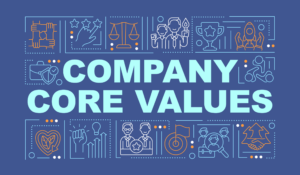Being in a leadership or a senior HR position can be a tough gig at the best of times, but no more so than through the biggest global disruption, we have seen since the Second World War. The COVID-19 pandemic has meant that HR professionals have had to become experts in a whole range of new areas. In the past, HR decisions have been governed by policy, law, and textbook best practices. However, with the implementation of new schemes such as furlough and a need to understand wider health implications such as COVID-19 symptoms and the impact of COVID-19 long-term, this has required HR to become upskilled in new and different ways. They are finding themselves having many more difficult and personal conversations as the impact of the pandemic continues to magnify, often being ill-equipped to deal with what they are hearing and at a cost to their own wellbeing.
At the start of the pandemic, HR teams were in a reactive mode, adapting to changes quickly, moving to virtual working, resource planning, moving employees onto furlough, and putting in temporary HR policy changes to patch the gaps. As government guidance continues to change as a result of COVID-19, it requires HR to move from being reactive to more proactive. Moreover, they need to be pre-emptive of what might come next so they can prepare for the inevitable employee questions and need for guidance, as well as those of managers.
There is no doubt that there has been a significant impact on people, the way they work, and their wellbeing because of the pandemic. For those in leadership and HR positions, who are responsible for making difficult business decisions that impact the future of the organization and the people within it – this has caused extra stress and pressure and a need for them to take extra care of their own wellbeing as well as those whom they serve. The age-old expression of ‘putting your own oxygen mask on first’ has never been more relevant. So how do we support people in these key leadership and HR positions to do just that?
- Providing support for those in leadership and HR to manage their own resilience when faced with a significant change or prolonged periods of pressure. We often neglect to support those who are responsible for delivery and managing change projects and focus on those directly impacted, so it is important that this is factored into any change management planning. Projects such as restructuring and potential redundancies involve difficult and emotional conversations that will be even more difficult than usual due to the pressures in the external environment. To protect the organization’s interests and to do the right thing by their people, it is crucial that those responsible are in a resilient place and able to carry out their role effectively.
- Identify if there are any skills gaps resulting from the change in requirements, specifically for HR Teams. Often organizations put in a business partnering model and fail to upskill their teams to adapt to the more strategic focus of the role, which will become increasingly important post-pandemic. As we move towards a return to work and navigate the complexities of a hybrid working model, this will require further strategic thinking and a greater ability to influence others in terms of creating people policies. It is important to give this critical function HRBP training to ensure HR teams are fully prepared to thrive in the partnering model and provide the organization with a value-added service now and for the future. Consider an internal engagement platform that includes learning, skill improvement, and training modules. This will ensure the HR team is up to date with their knowledgebase.
- Provide leadership coaching programs to support those with line management responsibilities. This will help them navigate periods of change more quickly by raising their self-awareness and their emotional responses to change. This is one of the key ways to build their resilience by knowing and understanding themselves and how to be flexible and adaptable in their approach when working with others. There is a lot of research that tells us the relationship between the line manager and employee is critical in employee engagement and talent retention, so giving managers support to develop their leadership skills, personal skills, and ability to support others with their resilience during this time, is more important than ever.
As the news of increasing numbers of people being vaccinated and we wait in anticipation of the phase back out of lockdown, HR and leadership teams will now need to look to the future and develop their people strategies for employee’s post-COVID-19 requirements. This will involve greater flexibility of working hours and location, ability to care for dependents, and sickness and holiday policies to take into account COVID-19 requirements (for isolation and quarantine in the longer-term).
There is no doubt that the last year will have fundamentally changed how people live and work and what is important to them in terms of combining both. They will be looking for employers who have adapted well to this and kept people at the center of their organizational decision-making. When organizations think about the attraction and retention of talent, they need to be aware that the ability to have autonomy over how, when, and where people work will be a higher decision factor than ever before.
Therefore, organizations need to ensure their leaders and HR teams are able to think strategically and proactively about how to support their people in this new world. In order to do this, they need to be in a resilient place themselves and be able to lift their heads up from the here and now and proactively plan for the world post lockdown/ post-pandemic. This could be by 1) providing support for HR teams to remain resilient and able to continue to adapt to change to champion the organizational people agenda, 2) providing senior leadership team development or one to one leadership coaching, or 3) providing leadership coaching for the line managers and leaders in the organization. This will make the difference in navigating through this next period of change in our history and enabling our organizations and people within them to continue to thrive.
Author Bio:
Jo is responsible for the day-to-day running of the People Development center of expertise at Connor, an outsourced HR services provider. She is also a consultant and an accredited VoicePrint coach. She is a member of the CIPD and holds a level-5 diploma in HR management. With 20 years of commercial and operational management roles behind her, Jo brings a wealth of practical experience to her role.













